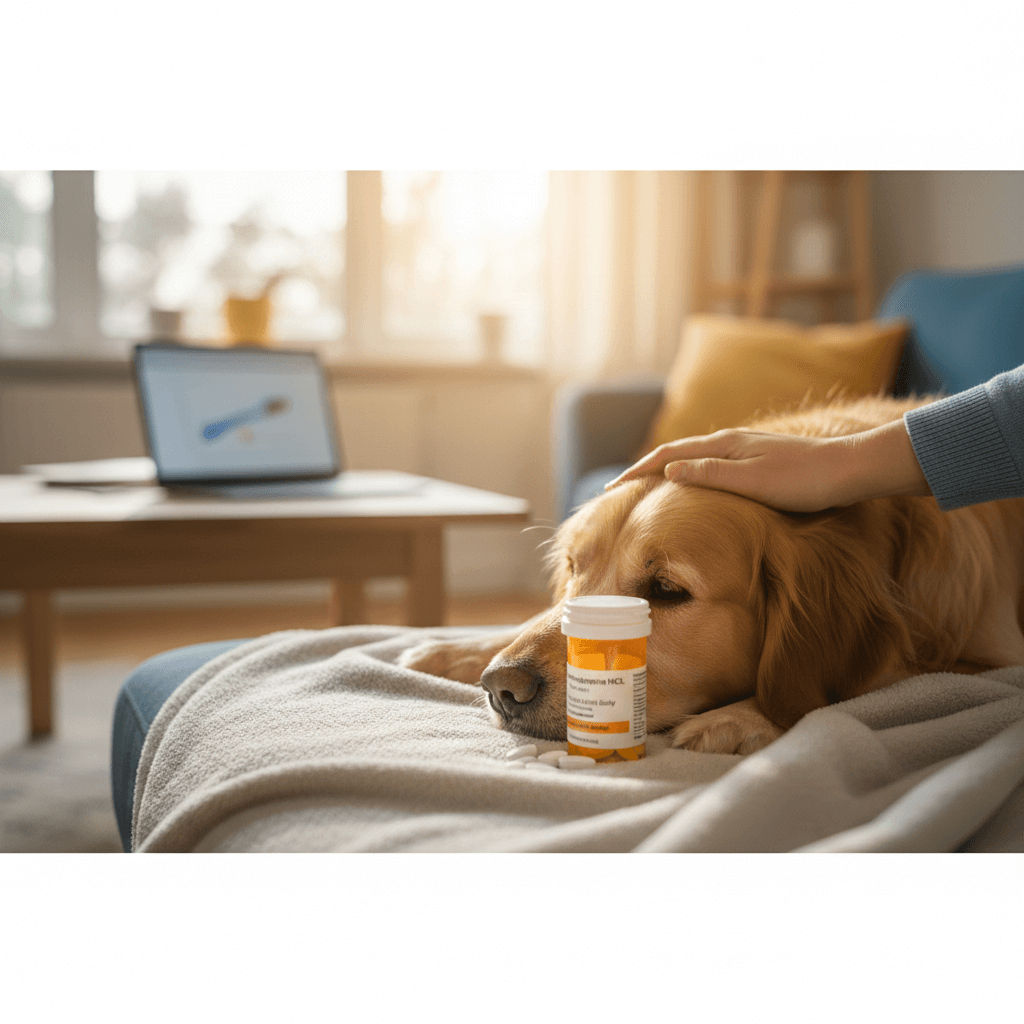Why Is My Dog Avoiding Me? Understanding the Reasons Behind This Behavior
It’s heartbreaking to feel like your furry best friend is avoiding you. Dogs are known for their loyalty and unconditional love, so when they suddenly start acting distant, it can leave you feeling confused and even a little hurt. But before you jump to conclusions, it’s important to remember that dogs communicate differently than humans. Their behavior often reflects their emotions, health, or environment. If you’ve been wondering, “Why is my dog avoiding me?” this blog post will explore the most common reasons behind this behavior and provide actionable tips to rebuild your bond. Whether it’s a temporary phase or a sign of something deeper, understanding your dog’s perspective is the first step toward resolving the issue.
Common Reasons Why Your Dog Might Be Avoiding You
Dogs avoid their owners for a variety of reasons, ranging from physical discomfort to emotional distress. Identifying the root cause is essential to addressing the behavior effectively. Here are some of the most common explanations for why your dog might be keeping their distance.
Physical Pain or Discomfort:
If your dog is in pain, they may associate your touch or presence with discomfort, leading them to avoid you. Conditions like arthritis, injuries, or dental issues could be the culprit.Fear or Anxiety:
Loud noises, sudden movements, or past traumatic experiences can make your dog feel anxious, causing them to retreat from interaction.Overstimulation or Stress:
Too much attention, playtime, or environmental stimuli can overwhelm your dog, making them seek solitude to decompress.Punishment or Negative Associations:
If your dog has been scolded or punished recently, they may associate you with those negative experiences and avoid you as a result.Changes in Routine or Environment:
Moving homes, introducing a new pet, or altering daily schedules can disrupt your dog’s sense of security, leading to avoidance behavior.
Understanding these potential triggers can help you identify why your dog might be avoiding you and take steps to address the issue. Remember, patience and empathy are key to rebuilding trust.
Signs Your Dog Is Avoiding You: What to Look For
Sometimes, it’s not immediately obvious that your dog is avoiding you. Subtle behavioral changes can indicate discomfort or distress. Being aware of these signs can help you intervene early and address the problem. Here’s what to watch for.
Hiding or Retreating:
If your dog frequently hides under furniture, in corners, or in another room, it could be a sign they’re trying to avoid interaction.Turning Away During Interaction:
When you approach, your dog might turn their head or body away, signaling discomfort or disinterest.Reluctance to Make Eye Contact:
Dogs often avoid eye contact when they’re feeling uneasy or stressed, which can be a subtle clue they’re avoiding you.Excessive Licking or Yawning:
These behaviors can indicate stress or anxiety, suggesting your dog feels overwhelmed by your presence.Ignoring Commands or Cues:
If your dog suddenly becomes unresponsive to commands or cues they usually follow, it could mean they’re trying to create distance.
Recognizing these signs early can help you address the underlying issue before it escalates. Observing your dog’s body language is crucial to understanding their needs.
Check this guide 👉Why Dogs Kick Their Back Legs: Best 7 Expert Tips!
Check this guide 👉Understanding Why Dogs Show Their Teeth: Best 7 Expert Tips!
Check this guide 👉Why Does My Dog Lick My Knees? Best 7 Expert Tips!

Behavioral Signs of Avoidance | Possible Causes |
|---|---|
Hiding or retreating | Fear, anxiety, or physical pain |
Turning away | Overstimulation or discomfort |
Reluctance to make eye contact | Stress or feeling threatened |
Excessive licking or yawning | Anxiety or nervousness |
Ignoring commands | Confusion, fear, or disengagement |
How to Rebuild Trust With Your Dog: Practical Tips
If your dog is avoiding you, rebuilding trust is essential to restoring your bond. This process requires patience, consistency, and a willingness to meet your dog’s needs. Here are some practical steps to help you reconnect with your furry friend.
Give Them Space:
Allow your dog to approach you on their terms instead of forcing interaction. This helps them feel more in control and less anxious.Use Positive Reinforcement:
Reward your dog with treats, praise, or toys when they show signs of wanting to engage. Positive reinforcement builds trust over time.Spend Quality Time Together:
Engage in activities your dog enjoys, such as gentle play or walks, to strengthen your bond without overwhelming them.Monitor Your Body Language:
Dogs are highly sensitive to human emotions. Stay calm, relaxed, and non-threatening to make yourself more approachable.Consult a Professional:
If the avoidance persists, consider seeking advice from a veterinarian or a certified dog behaviorist to rule out underlying issues.
Rebuilding trust takes time, but with consistent effort, your dog will likely begin to feel more comfortable around you again. Patience is key to success.
Preventing Future Avoidance: Proactive Strategies
To prevent your dog from avoiding you in the future, it’s important to create a supportive and nurturing environment. By addressing potential stressors and fostering a strong bond, you can minimize the chances of this behavior recurring. Here’s how to stay proactive.
Establish a Routine:
Dogs thrive on consistency. Stick to regular feeding, walking, and play schedules to provide a sense of stability.Avoid Harsh Punishments:
Use positive reinforcement instead of punishment to encourage good behavior and maintain trust.Provide Mental Stimulation:
Puzzle toys, training sessions, and interactive games keep your dog mentally engaged and reduce stress.Monitor Health Regularly:
Schedule routine vet check-ups to ensure your dog isn’t experiencing any undiagnosed health issues that could lead to avoidance.Create a Safe Space:
Designate a quiet, comfortable area where your dog can retreat when they need time alone.
By implementing these strategies, you can create an environment where your dog feels safe, loved, and less likely to avoid you. Prevention is always better than cure.
The Role of Communication in Avoidance
Effective communication is key to understanding why your dog might be avoiding you. Dogs rely on body language, tone of voice, and energy to interpret human behavior. Miscommunication can lead to confusion and avoidance. Here’s how to improve your communication with your dog.
Be Mindful of Your Tone:
A harsh or loud tone can intimidate your dog, making them more likely to avoid you. Speak softly and calmly to convey reassurance.Use Clear Commands:
Ensure your commands are simple and consistent. Mixed signals can confuse your dog and lead to disengagement.Observe Their Cues:
Pay attention to your dog’s body language, such as tail position or ear movement, to gauge their comfort level.Respect Their Boundaries:
If your dog seems uncomfortable, give them space instead of pushing for interaction. Respecting their boundaries builds trust.Practice Patience:
Building a strong connection takes time. Avoid rushing the process and let your dog set the pace.
Improving communication with your dog can help prevent misunderstandings and foster a stronger bond. It’s all about meeting them halfway.
How Environmental Factors Influence Avoidance
Your dog’s environment plays a significant role in their behavior. Changes or disruptions in their surroundings can lead to avoidance as they try to cope with unfamiliar situations. Here’s how environmental factors might be affecting your dog.
New Pets or People:
Introducing a new pet or person into the household can make your dog feel insecure, prompting them to withdraw.Loud Noises or Construction:
Sudden or ongoing noise disturbances can stress your dog, causing them to seek refuge.Unfamiliar Scents:
Strong or unusual smells, such as cleaning products or perfumes, can overwhelm your dog’s sensitive nose.Crowded Spaces:
Overcrowded areas, especially during gatherings or parties, can make your dog feel anxious and retreat.Weather Changes:
Extreme weather conditions, like thunderstorms or heatwaves, can affect your dog’s mood and behavior.
Understanding how environmental factors impact your dog can help you create a calmer, more predictable space for them. A stable environment fosters trust and reduces avoidance.
Fun Ways to Strengthen Your Bond With Your Dog
Strengthening your bond with your dog doesn’t have to feel like work. Incorporating fun and engaging activities into your routine can make spending time together enjoyable for both of you. Here are some creative ideas to deepen your connection.
Go on Adventure Walks:
Explore new trails, parks, or neighborhoods to stimulate your dog’s senses and create shared memories.Teach New Tricks:
Training sessions that focus on learning new tricks can be both mentally stimulating and bonding.Play Interactive Games:
Games like hide-and-seek or fetch encourage teamwork and boost your dog’s confidence.Try Nose Work Activities:
Hide treats around the house or yard and let your dog use their sense of smell to find them.Cuddle and Relax Together:
Sometimes, simply sitting together and enjoying each other’s company can strengthen your bond.
These activities not only bring you closer but also help your dog feel more secure and connected. A happy dog is a confident dog.
Frequently Asked Questions About Dogs Avoiding Their Owners
Why does my dog suddenly avoid me after being affectionate?
Sudden avoidance can be caused by physical discomfort, stress, or a change in routine. Observe their behavior for clues.
Could my dog be avoiding me because of punishment?
Yes, punishment can create negative associations. Switching to positive reinforcement can help rebuild trust.
How long does it take to regain a dog’s trust?
The timeline varies depending on the situation, but consistent effort over weeks or months often yields results.
Should I force interaction if my dog is avoiding me?
No, forcing interaction can worsen the situation. Instead, give your dog space and let them come to you.
Can health issues cause my dog to avoid me?
Absolutely. Pain or illness can make your dog want to avoid contact. Consult a vet to rule out medical causes.
Reconnecting With Your Dog: A Journey of Love and Understanding
If you’ve been asking, “Why is my dog avoiding me?” remember that the answer often lies in understanding their unique needs and emotions. Whether it’s due to fear, discomfort, or a change in their environment, addressing the root cause with patience and care can help restore your bond. By building trust, improving communication, and creating a supportive environment, you can ensure your dog feels safe, loved, and connected. Dogs are incredibly forgiving creatures, and with the right approach, you can overcome this challenging phase together. After all, the love between a dog and their owner is one of the most rewarding relationships in the world.
How Cats Develop Lymphoma: Best 7 Expert Tips! – Learn about causes, symptoms, and prevention to protect your cat from this common cancer.
How Dogs Develop Lymphoma: Best 7 Expert Tips! – Learn causes, symptoms, and prevention strategies to protect your dog from this common cancer.
Diphenhydramine Safe for Dogs? Best 7 Expert Tips! – Learn proper dosing, uses, and precautions to keep your dog safe while using Benadryl.
Is Milk in Cat Food Safe? Best 7 Expert Tips! – Discover the truth about milk in cat food, its risks, and how to keep your feline healthy and happy.





